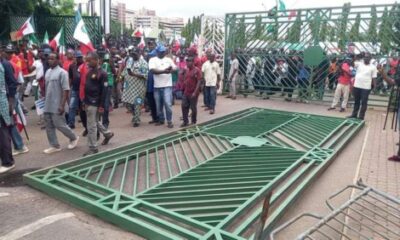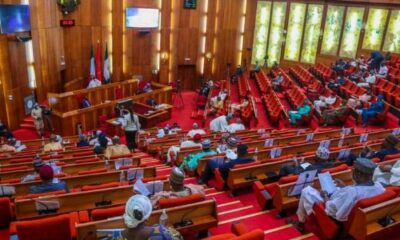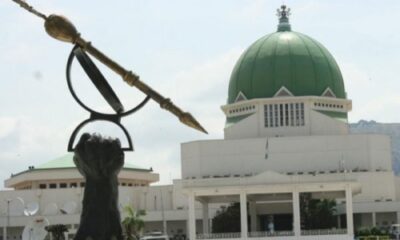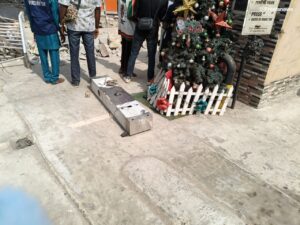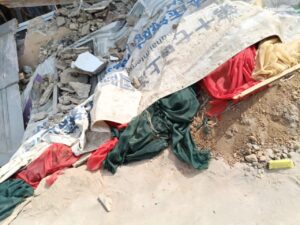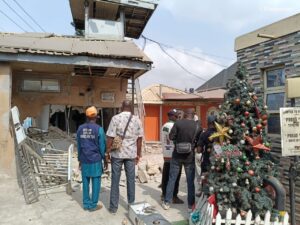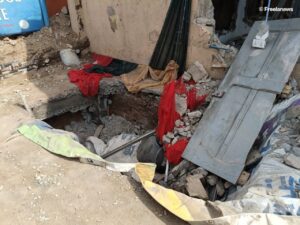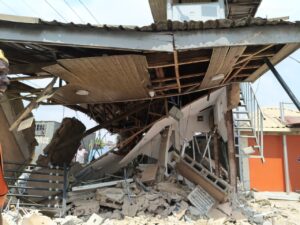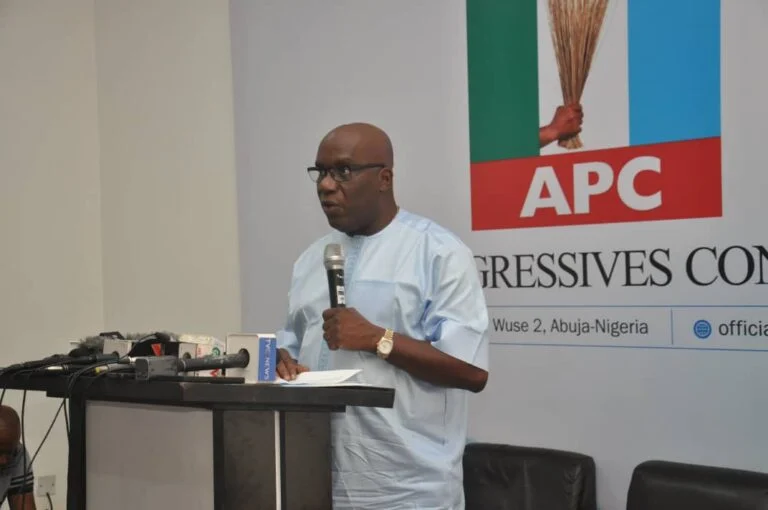
Documents have revealed how top officials of the National assembly padded the 2016 budget to the tune of N481billion.
According to Vanguard newspaper, the national assembly also unilaterally jerked the votes meant for constituency projects from N60 billion to N100 billion.
Recall that the sacked chairman of the House of Representatives committee on appropriation, Abdul Jibrin had said the Speaker allowed 10 committee chairmen to insert projects worth N284 billion in the budget.
The report said lawmakers removed some key projects proposed by the executive or drastically reduced their costs and introduced many others not contemplated by the Presidency which prepared the budget.
Among the projects which votes were surreptitiously jerked up without the knowledge of the executive, were Nigerian railway modernization project: Lagos – Kano standard gauge rail line project, which cost was raised by N32.5 billion and the consultancy dredging and river training works (N609 million) under the Ministry of Transportation.
Others are the Code of Conduct Bureau which had N4.4billion added to its vote, provision of broadband Internet Service to National Assembly by Nigcomsat, N318 million, Training and Consultancy for Nigcomsat 2 Project, N3.5 billion etc, in the Ministry of Communications.
Most scandalous, according to the document, is the case of Ministry of Works, Power and Housing where 82 new projects, principally roads, with a total provision of about N50.63 billion, were inserted in the budget.
Quoting documents seen by the newspaper, the Presidency, which reviewed the budget, said: “A large number of these projects are outside the mandate of the relevant Ministry (e.g. the Ministry of Agriculture and Rural Development, and the Ministry of Works, Power & Housing); or statutorily outside the FGN’s mandate (like intra-city and state road projects); or cannot be implemented as there are no designs or costings made for them.
“The amounts proposed for some MDAs’ projects were increased significantly without due consultations on implementation capacity or additional financing needs for the projects. This amounts to tying down resources that could have been applied to more impactful projects in other areas.
“In addition, hundreds of new projects that have no relationship to the MDA’s were introduced and simply cannot be implemented. Among these are the construction of town halls, township street lights, procurement of transformers and tricycles under the Ministry of Power, Works and Housing and the building of classrooms under the Ministry of Agriculture etc.”
Also, the executive proposal of N4.06 billion for the provision for test kits, vaccines and anti-retroviral drugs under the Federal Ministry of Health was reduced to N1.01 billion.
“As a result of this reduction, there shall be vaccines stock-out by October 2016 and, among other things, the gains of polio eradication will be lost, and the government will be hampered in the battle against HIV.
“Very large cuts have been made to proposals for many important projects in several MDAs and the sums applied to fund hundreds of new projects. “The Bill (2016 budget) cannot be implemented in its current form because some of the figures in the Bill passed do not correspond with the figures in the budget details accompanying the Bill.
“The aggregate expenditure as contained in the budget details as passed, is higher than that in the Appropriation Bill by about N481 billion, compared to the Appropriation Bill.
“The executive made provision for the sum of N60 billion to be used by members of the National Assembly in funding their constituency projects. This was increased by the National Assembly to N100 billion.
“It is, therefore, unclear why, in spite of this increase, the National Assembly felt it necessary to divert funds from line Ministries for their constituency projects, having already provided for same in the Service Wide votes.
“The amounts allocated to a number of important projects in a number of key ministries have been so reduced that they cannot be implemented. The savings from these reductions have been re-allocated to hundreds of new projects which have not been designed or costed and so cannot be implemented.

 BIG STORY2 days ago
BIG STORY2 days ago
 BIG STORY2 days ago
BIG STORY2 days ago
 BIG STORY1 day ago
BIG STORY1 day ago
 BIG STORY2 days ago
BIG STORY2 days ago
 BIG STORY4 days ago
BIG STORY4 days ago
 BIG STORY8 hours ago
BIG STORY8 hours ago
 BIG STORY1 day ago
BIG STORY1 day ago
 BIG STORY4 days ago
BIG STORY4 days ago








